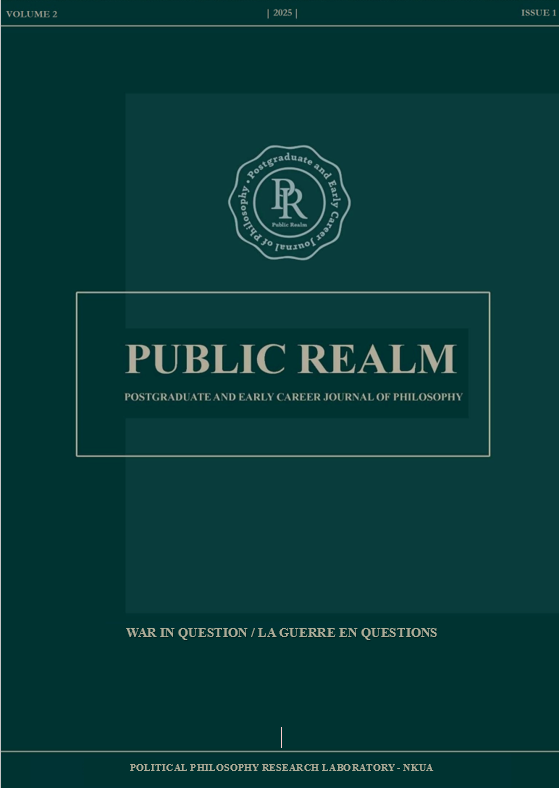Does the Melian Dialogue serve as an emphatic continuation of Pericles’ imperialist policy?

Abstract
This article is divided into two parts: in the first part I undertake the weighty task of interpreting the Melian Dialogue – the widely known conversation between the Athenians and the Melians, which took place in 416 B.C. – and then I shed light on the immorality that characterizes the views expressed by the Athenians. Athens seeks to conquer Melos by force, basing its decision on the necessity of Athenian hegemony to constantly expand its territorial borders. The second part of this paper examines the three speeches of Pericles – propounded by Thucydides – and attempts to prove that the Melian Dialogue acts as a faithful continuation of Pericles’ imperialistic orations. In this way, it becomes evident that the Melian Dialogue is not just a circumstantial event, caused by the pain and suffering of the Peloponnesian War, but represents as well a carefully considered expansionist policy put into practice by the Athenians throughout the years.
Article Details
- How to Cite
-
Anastasopoulos, S. (2025). Does the Melian Dialogue serve as an emphatic continuation of Pericles’ imperialist policy? . Public Realm. Postgraduate and Early Career Journal of Political Philosophy, 2, 67–85. https://doi.org/10.12681/pr.v2.35535
- Section
- Articles
Authors who publish with this journal agree to the following terms:
Authors retain copyright and grant the journal right of first publication with the work simultaneously licensed under a Creative Commons Attribution Non-Commercial International License (CC BY-NC 4.0) that allows others to share the work with an acknowledgement of the work's authorship and initial publication in this journal.
Authors are able to enter into separate, additional contractual arrangements for the non-exclusive distribution of the journal's published version of the work (e.g. post it to an institutional repository or publish it in a book), with an acknowledgement of its initial publication in this journal.
Authors are permitted and encouraged to post their work online (preferably in institutional repositories or on their website) prior to and during the submission process, as it can lead to productive exchanges, as well as earlier and greater citation of published work.


